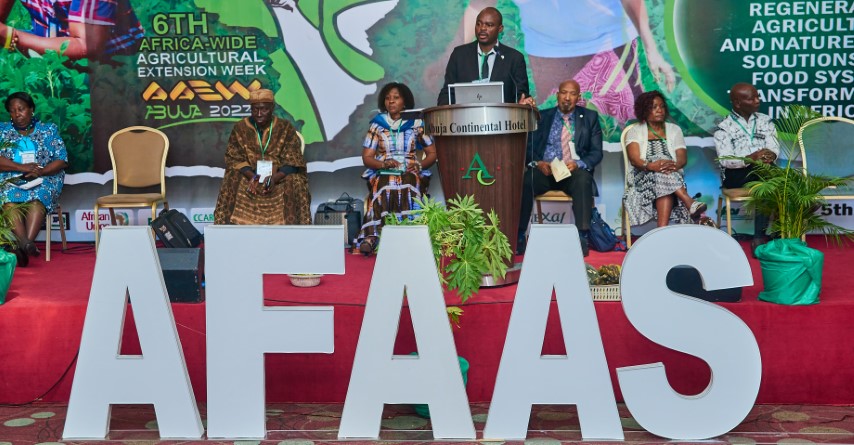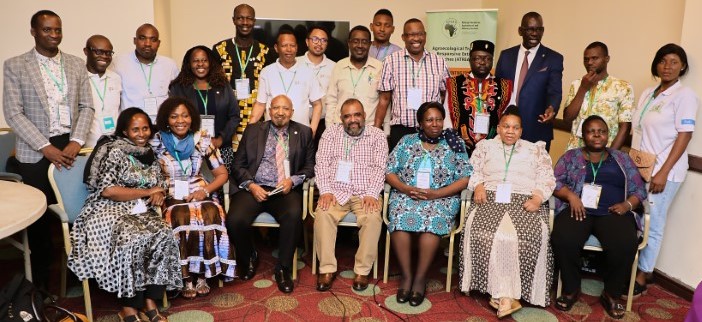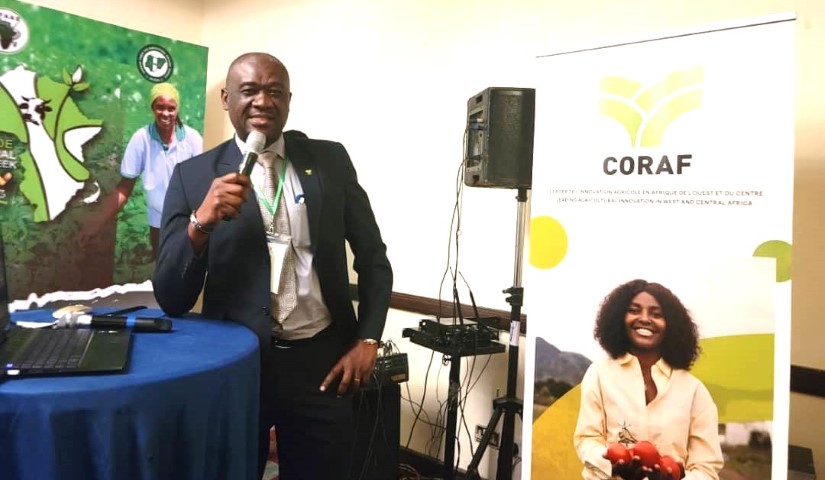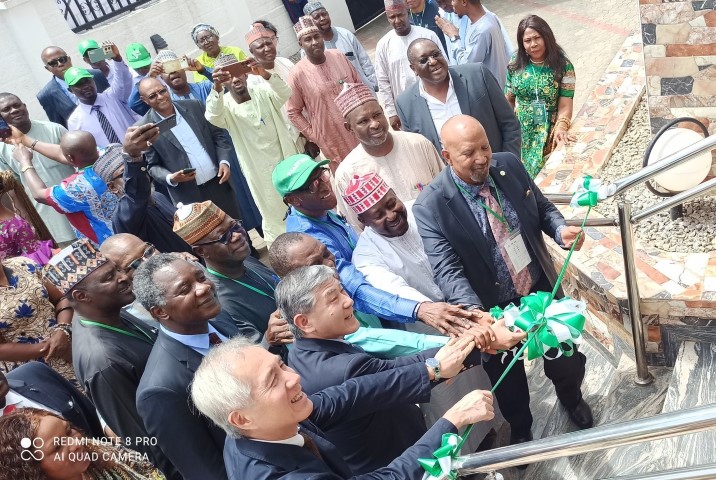
Dear Stakeholders,
We are glad to share with you highlights from the second day of the 6th Africa-Wide Agricultural Extension Week. Please get ready to dive into updates from enriching sessions that promise to elevate your experience and knowledge.

Day 2 started with an engaging session where country fora teams shared their perspectives on the value proposition in agri-food systems. From enhancing professionalization such as registration of extension workers in Uganda, training of actors on improved methodologies in Cameroon, contributing to policy dialogues, and advocating for policies, to collaboration with multiple actors including research and private sector, it was inspiring to see the diverse approaches through which the country fora work. Dr. Silim M Nahdy, AFAAS Executive Director encouraged country fora to engage and strengthen collaborations with research networks.
This was followed by the AFAAS General Assembly chaired by Dr. Paul Fatch, which highlighted progress at AFAAS, and plans for the future. Additionally, distinguished leaders of some partner organizations – FARA, CORAF, and CCARDESA, shared heartwarming goodwill messages.
Next were parallel presentations and side events including; Agriculture Extension Models and Approaches by USAID in collaboration with AGRA, SASAKAWA, EXAF, and GIZ; Research to Extension to Farmers: Catalyzing Partnership in Agricultural Technologies and best practices for dissemination by CORAF in Collaboration with the CAADPXP4 institutions; Agro-pastoral Development Extension Model by KSSADP/SASAKAWA Nigeria and Agroecological transition responsive extension approaches by AFAAS in Collaboration with GIZ and many more others around the various thematic areas of the conference were held. Presenters shared insightful and thought-provoking research, success stories, and models around regenerative agriculture and nature-based solutions.

The side event on Agro-ecological transition responsive extension approaches highlighted evidence from Kenya, Madagascar, Ethiopia, and Benin on the varying social agroecological extension approaches that exist in the different countries. From farmer to farmer extension models, farmer field schools, and crop-livestock integration models. The study highlighted constraints limiting scaling, and the level of transition of agroecology principles suggesting that project models may offer opportunities for co-creation and leveraging on existing extension models. Farmer-led extension approaches, such as farmer field schools, have been shown to be effective in promoting resilient livelihoods. These approaches provide farmers with hands-on learning opportunities and empower them to make informed decisions about their agricultural practices.

The side event on Research to Extension led by CORAF highlighted the need to facilitate access to research technologies by agricultural advisors. Behind every agricultural advice, there is a research result. For example, one speaker highlighted a case in Senegal where solving the problems of groundnuts means solving the problems of at least 70% of producers in the country. Researchers and agricultural advisors are all addressing the same target, hence a need to harmonize all actors and coordinate efforts, with each of the value chain actors focusing on their core responsibilities.
“If I produce 600 tonnes, I don’t have storage facilities, where do I sell it?” says a farmer who used to produce far less than that to Mme Aichatou Salifou, manager of the Ainoma seed farm in Niger.
The Research to Extension to Farmers offered great insights on catalyzing partnerships in agricultural technologies and best practices dissemination. Conversations about digitalization and appropriate channels resurfaced emphasizing the need to go beyond internet based channels to include traditional media, and these validated the plea by Senator Aliyu Sabi Abdullahi, Nigeria’s Minister of State for Agriculture and Food Security where he urged extensionists to reach farmers with appropriate messaging using multimedia channels.
Mr. Rex Chapota, the Executive Farm Radio International Malawi, emphasized the importance and need for knowledge dissemination using the right channels to each access by the farmers. He noted that said “where knowledge flows, food grows”
The event also featured success stories from AFAAS country fora teams that participated in Videos for farmers training and scaled these out to create more relevant videos for farmers. Indeed a digital age has ushered in new opportunities for agricultural extension and advisory services. However, a discussion about the digital gender divide came up and recommendations highlighted include promoting women’s engagement in conversations about agricultural digitalization, supporting youth-led initiatives, and improving channels for access and affordability of the digital technologies.
Notably, in an extension of their side event, the Sasakawa Africa Association officially commissioned the Sasakawa Africa Abuja office. The event was officiated by the The Ambassador of Japan to Nigeria, The Executive Director of AFAAS and the President of Sasakawa Africa Association. What a great timing for such a momentous occasion! We congratulate Sasakawa upon this milestone to scale-out and reach more farmers. See a photo highlight below.

Thank you for reading. Please stay tuned for more updates on day three of the Extension Week 2023!
Follow the discussions on all our social media platforms using the #AAEW2023
By CIKM Unit
